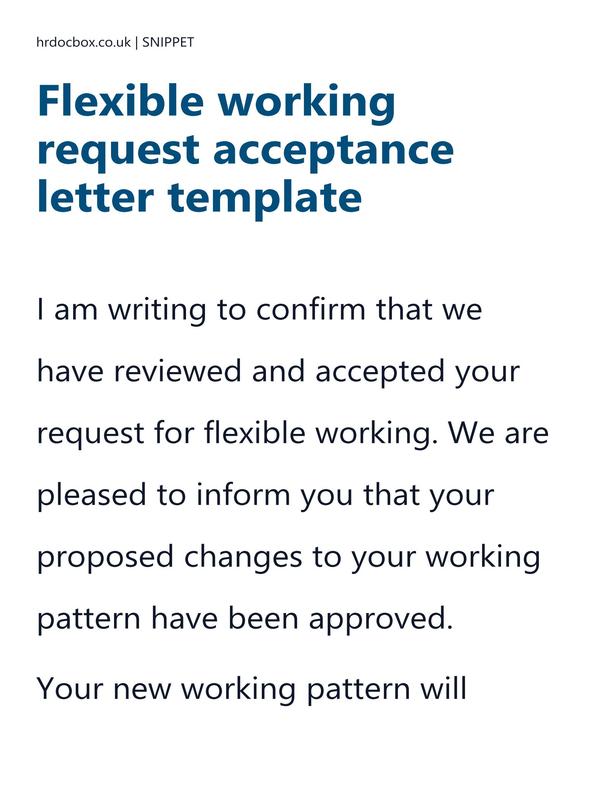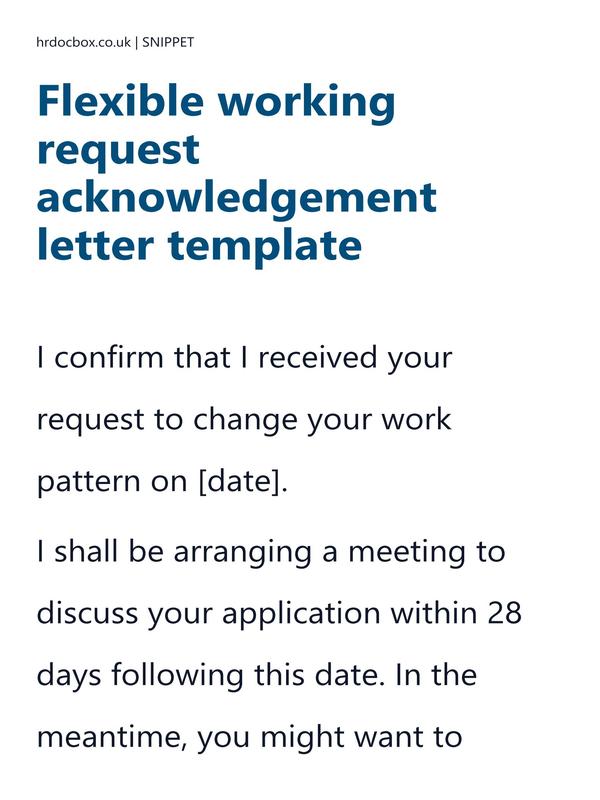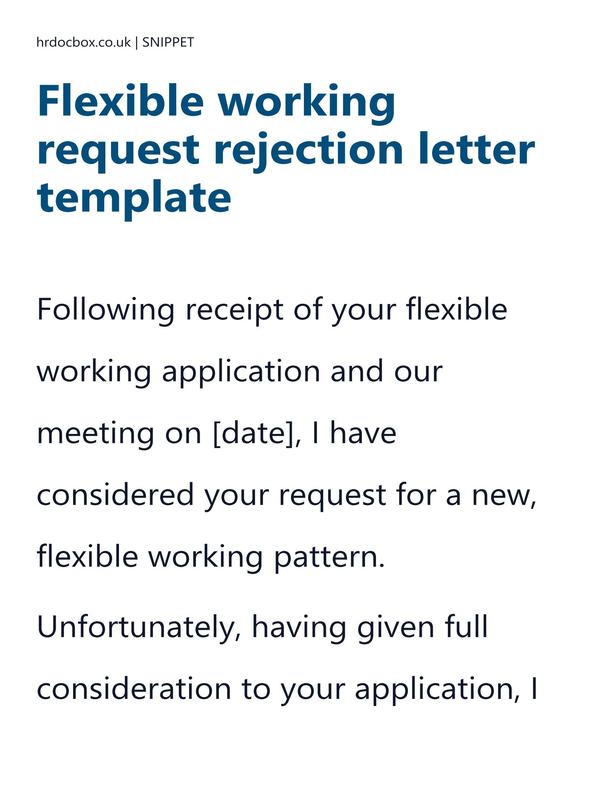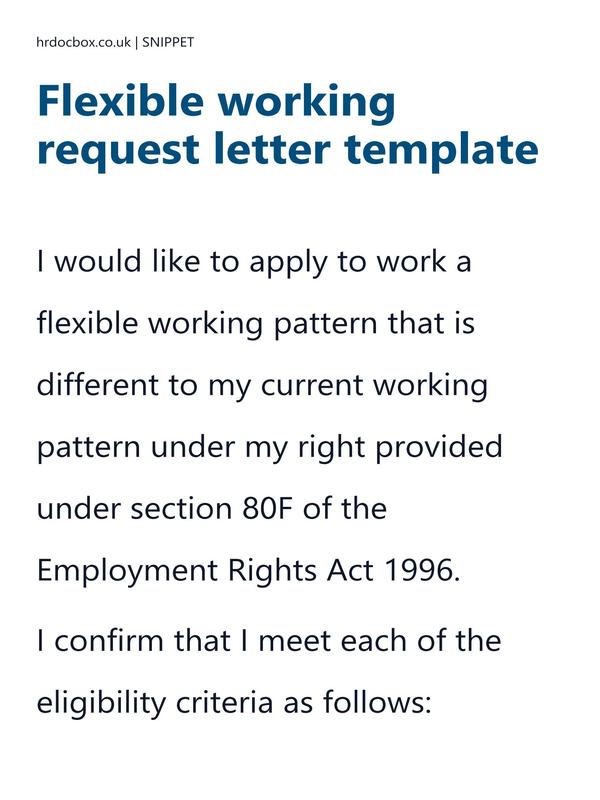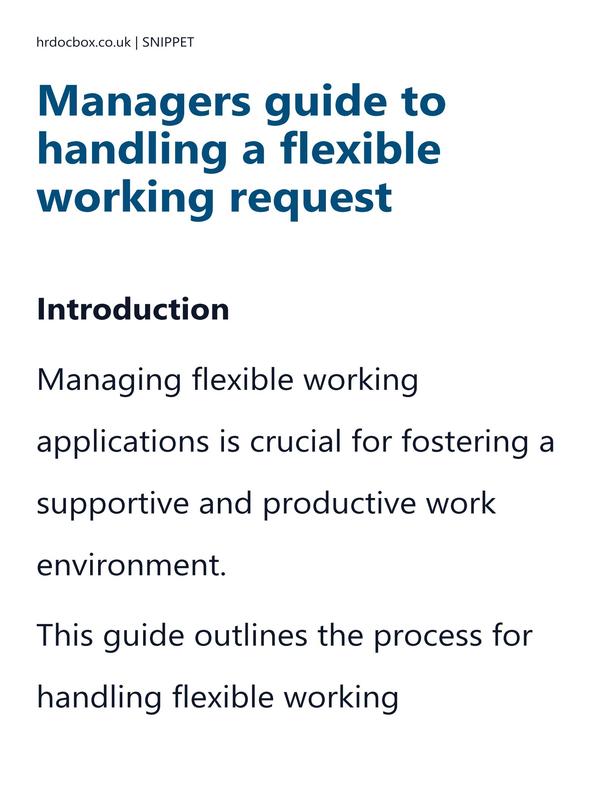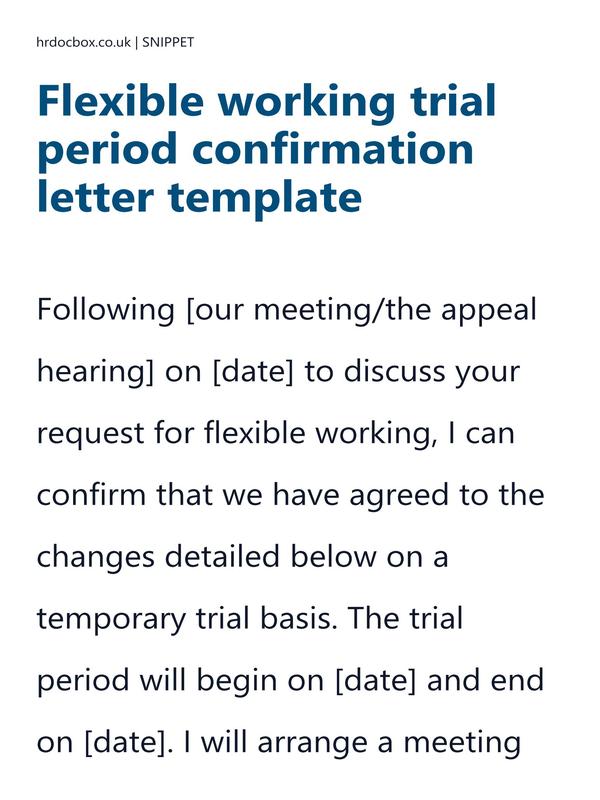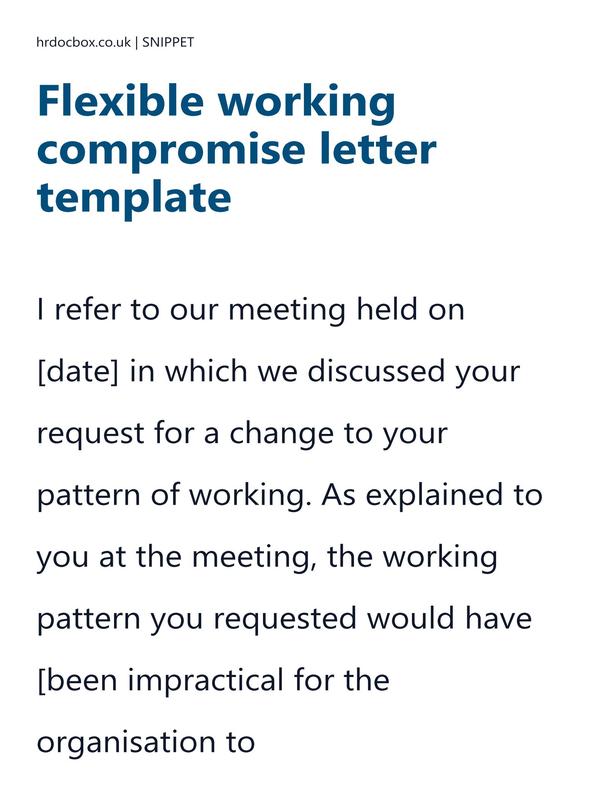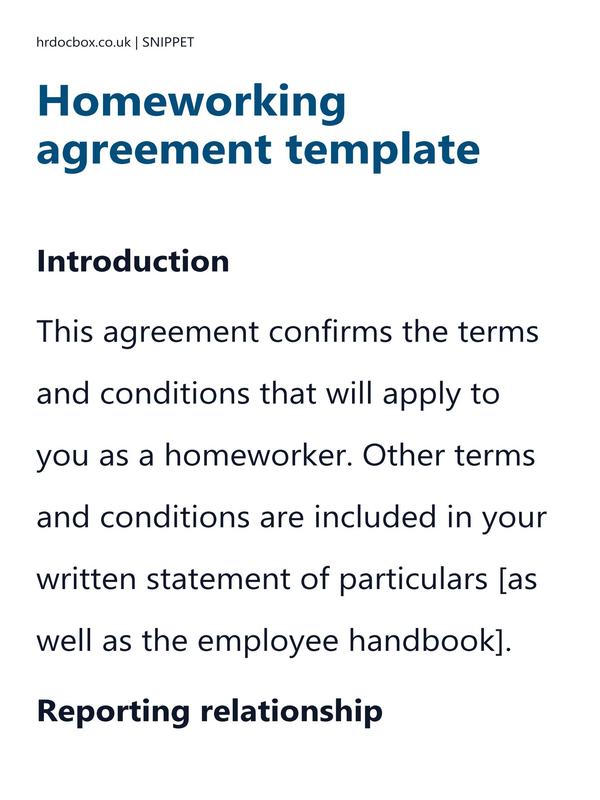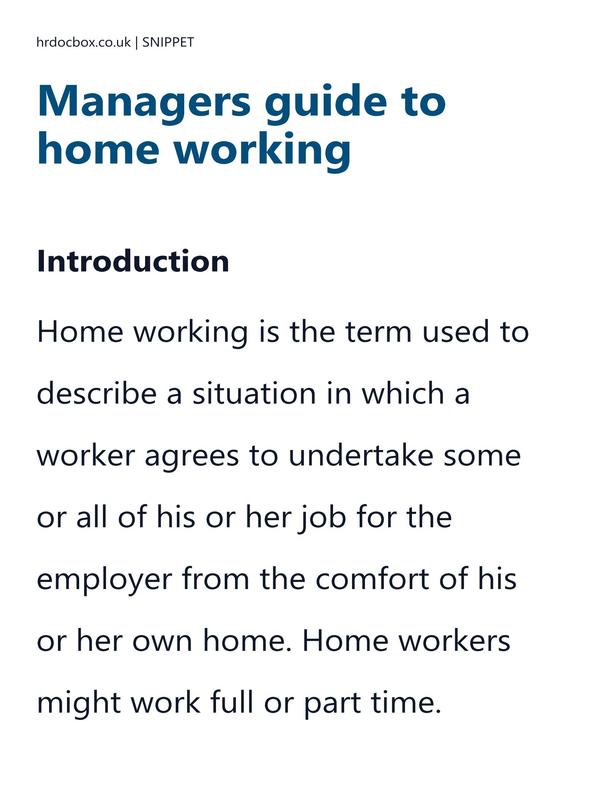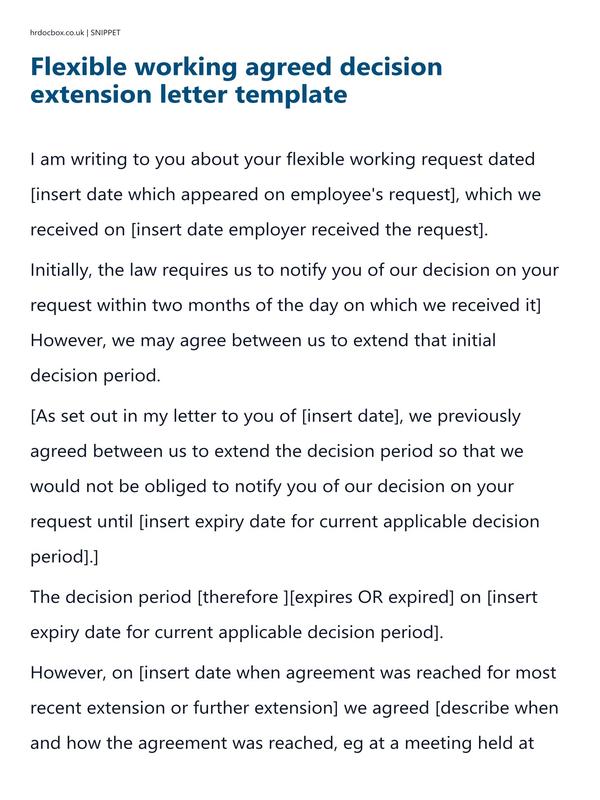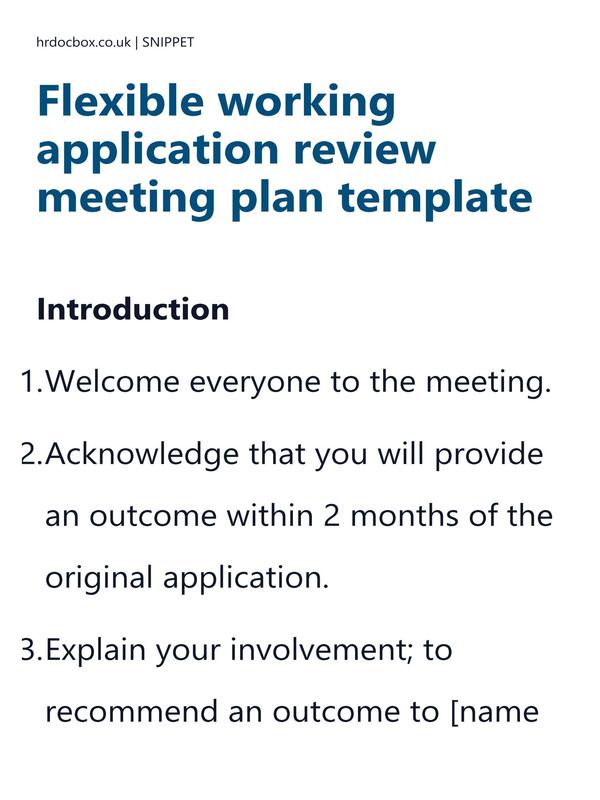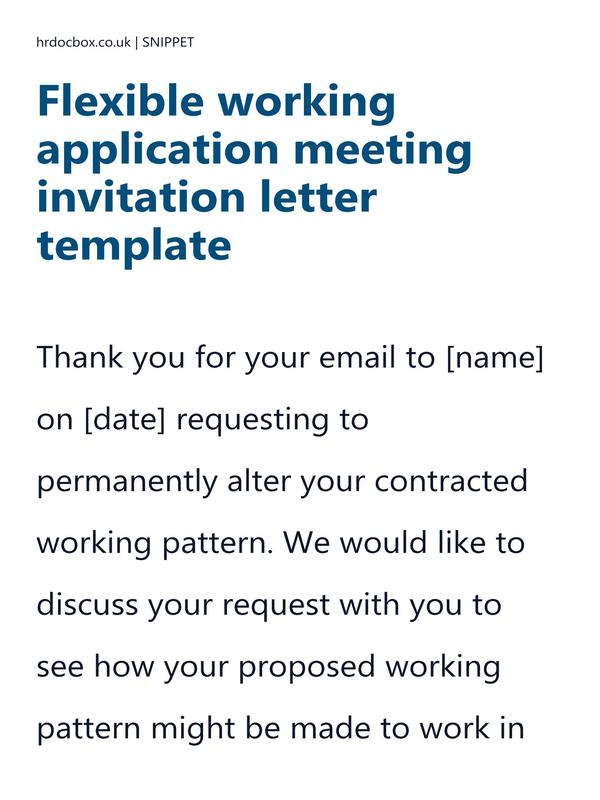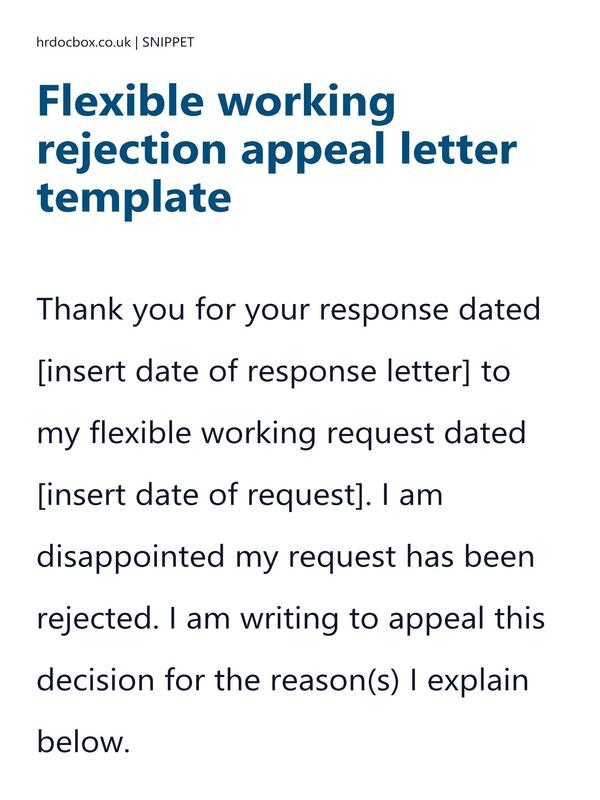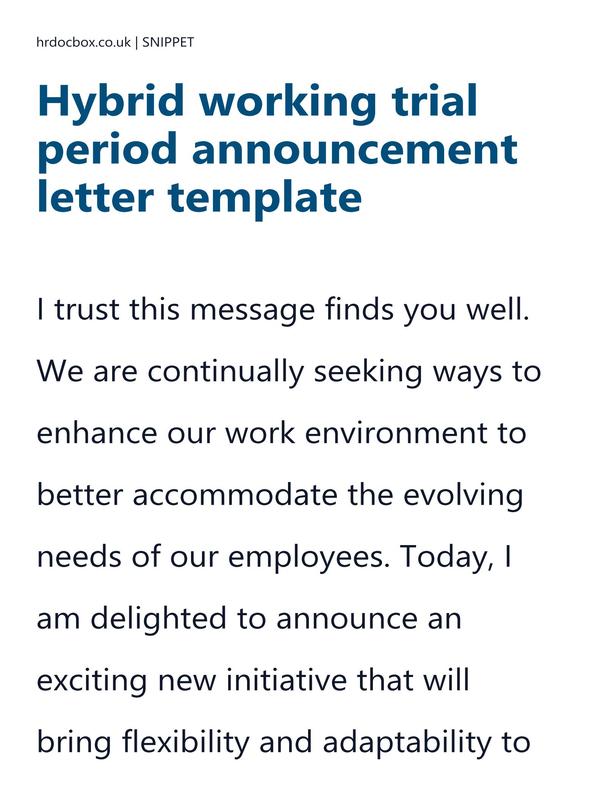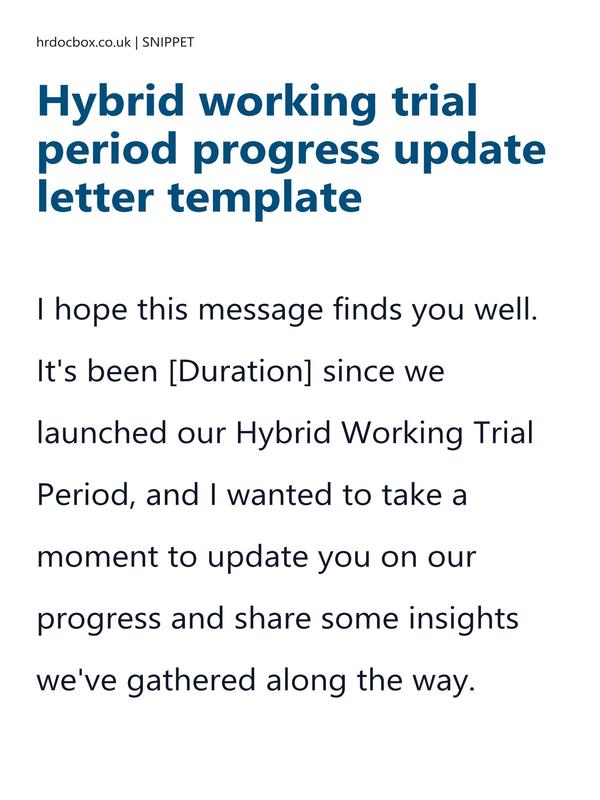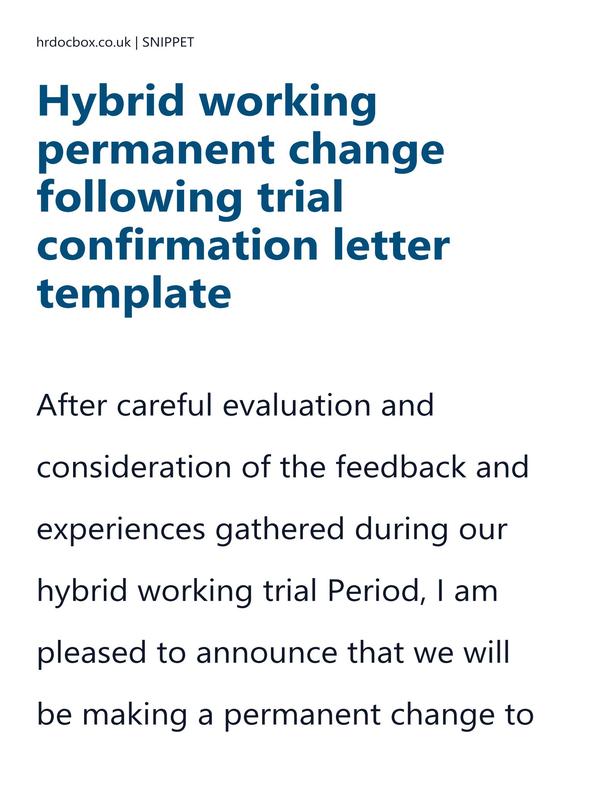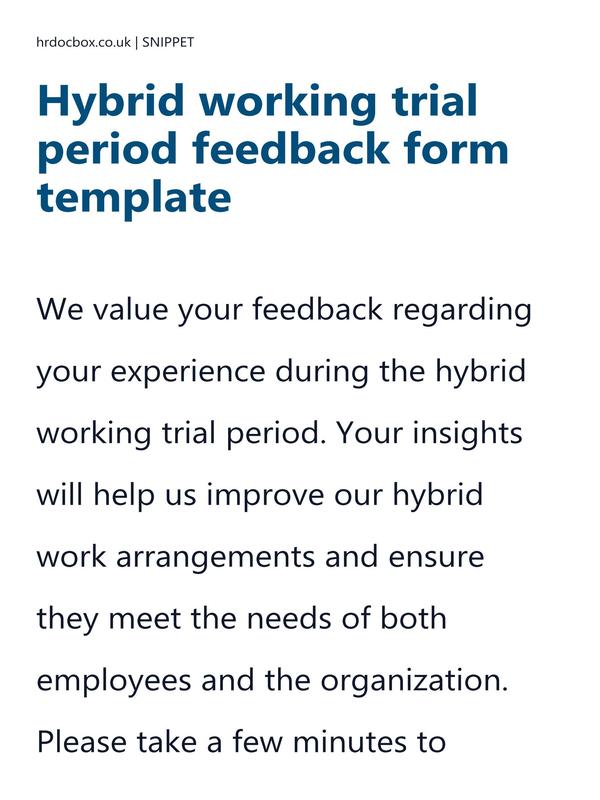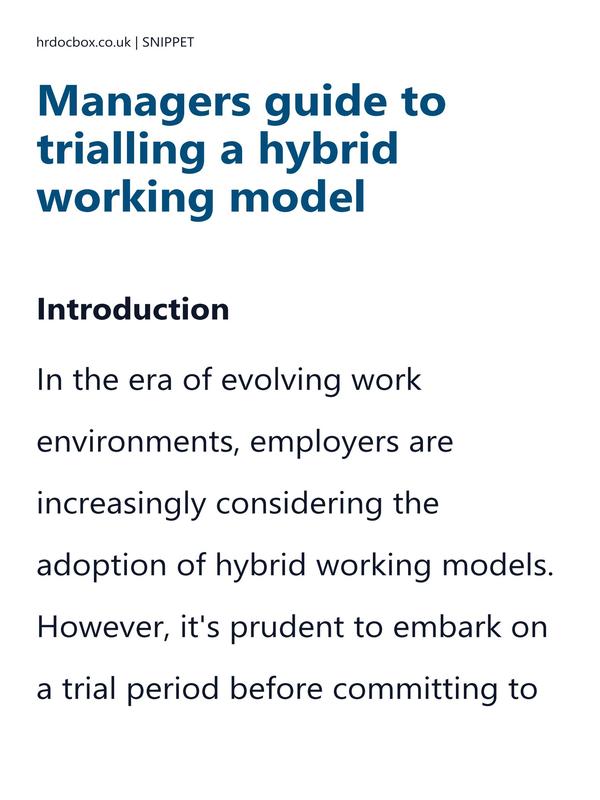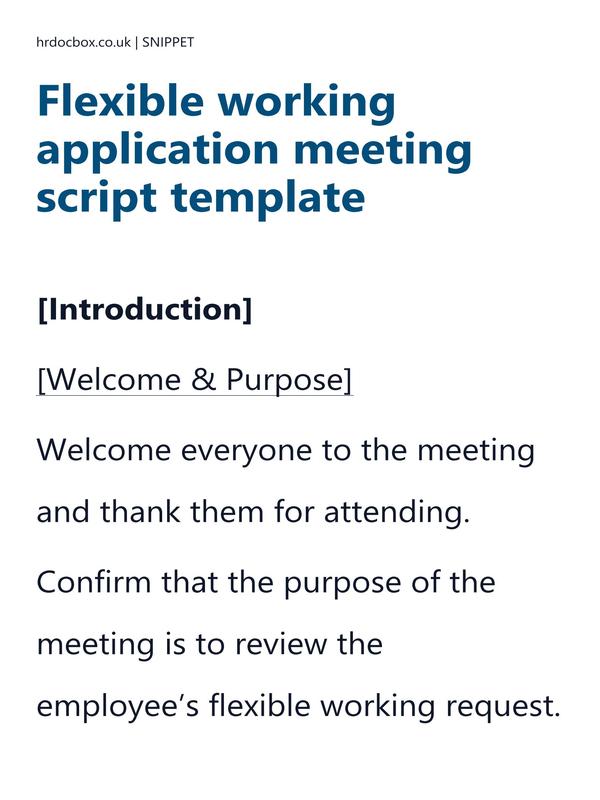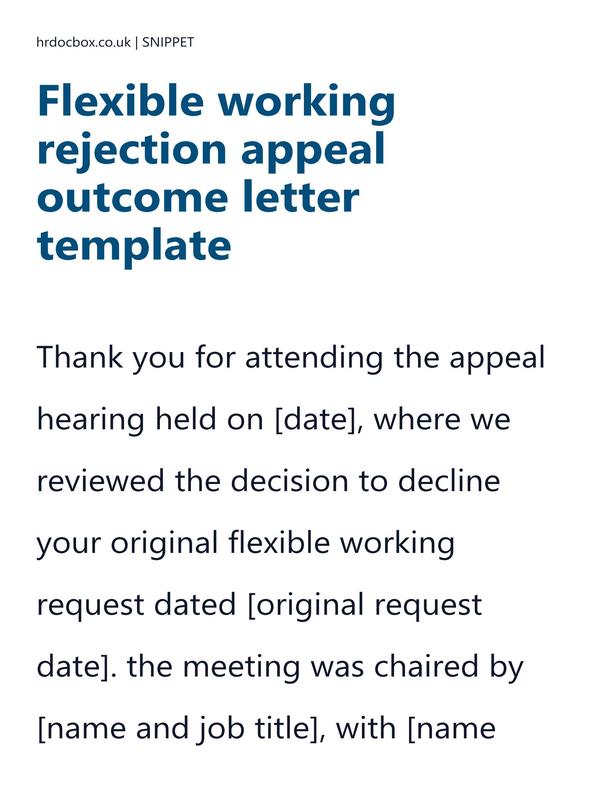Flexible and hybrid working templates toolkit
Our Flexible and Hybrid Working Templates Toolkit supports seamless implementation of modern work arrangements.
This is a comprehensive toolkit to help you manage flexible and hybrid working arrangements in your workplace. It includes a range of templates that are designed to simplify the process of managing flexible and hybrid working arrangements, save you time and effort, and ensure compliance with all relevant employment legislation.
From creating flexible working policies and procedures to managing flexible working requests and implementing hybrid working arrangements, our templates cover all the necessary documents required to manage flexible and hybrid working arrangements effectively.
- Includes 12 months' access to 29 Flexible And Hybrid Working templates, with all updates to the Flexible and hybrid working templates toolkit provided free of charge and notified to you.
- UK-specific accuracy.
- Instantly download templates as Word / PDF / plain text, or send by email.
- These Flexible and hybrid working templates toolkit will SAVE you up to 18 hours drafting & research, save you money, and reduce your risk.
Flexible and hybrid working
Flexible working is simply requesting to work a different pattern to that stated on the employee's terms and conditions of employment. Examples of kinds of flexible working that can be requested include:
-
Reducing hours to work part-time.
-
Changing start and finish times.
-
Having flexibility with start and finish time (sometimes known as ‘flexitime’).
-
Working hours over fewer days (‘compressed hours’).
-
Working from home or elsewhere (‘remote working’).
-
Sharing the job with someone else (‘job share’).
Hybrid working is a particular kind of flexible working that combines the benefit of being both in the workplace, and at home. As a form of flexible working, it can be accessed through the formal procedure.
Flexible and hybrid working templates are essential for managing a low-risk, compliant Flexible and hybrid working process.
Compliance
Compliance
-
From 6 April 2024, employees will be able to request flexible working from their first day in a new job.
-
If an employee is dismissed for requesting flexible working, no qualifying time of employment is necessary to file a claim for wrongful dismissal.
-
Full-time and part-time employees have the same ability to seek flexible working hours.
-
If an employee's request for flexible working is denied, he or she must file any claims with an employment tribunal within three months after the relevant date.
-
Organisations that are a 'good fit' for hybrid working can see benefits in the wellbeing, engagement, and motivation of their employees, as well as in productivity.
-
Guidance from Acas and the CIPD on hybrid working helps employers to transition into this way of working, and highlights the important considerations to make.
Key Flexible And Hybrid Working Case Law
Key Flexible And Hybrid Working Case Law
Navigating Flexible and hybrid working processes correctly is crucial to help you avoid any problems (which can be costly in terms of time, money and reputation).
Recent UK case law has highlighted key aspects of good Flexible and hybrid working management. Knowing how courts have handled claims can help you assess whether your proposed actions are likely to be seen as reasonable.
Here are some notable rulings and their implications:
Flexible Working
-
Wilson v Financial Conduct Authority (2024)
Facts: Miss Wilson, a Senior Manager at the FCA, requested to work entirely remotely. The FCA, citing potential detrimental impacts on performance and team dynamics, rejected her request.
Outcome: The Employment Tribunal found the FCA had breached the statutory decision period, awarding Miss Wilson one week's pay as compensation. The Tribunal upheld the FCA's decision based on the validity of their concerns.
Key Takeaway: This underscores the importance of employers providing detailed, fact-based reasons for flexible working decisions.
-
Hedger v British Deaf Association (2019)
Facts: Ms. Hedger, who worked for the BDA, was denied a flexible working request to reduce her hours to accommodate childcare.
Outcome: The Tribunal found the refusal lacked adequate justification and awarded Ms. Hedger £36,000 for indirect sex discrimination.
Key Takeaway: This case highlighted the need for employers to carefully consider the impact of flexible working refusals, especially regarding employees with caregiving responsibilities.
-
Thompson v Scancrown Ltd (2021)
Facts: Mrs. Thompson requested to adjust her working hours to pick up her child from nursery. Her employer refused, leading her to resign and file for indirect sex discrimination.
Outcome: The Tribunal ruled in her favour, awarding her £184,961.32.
Key Takeaway: The decision emphasised that inflexible working hours can disproportionately disadvantage women with childcare responsibilities, requiring employers to justify such practices thoroughly.
Hybrid Working
-
Harvey v City of Oxford Bus Services Ltd (2020)
Facts: Mr. Harvey, an employee who observed the Sabbath, faced a conflict with his employer's requirement to work on weekends as part of a hybrid working policy.
Outcome: The tribunal held that the employer’s policy indirectly discriminated against Mr. Harvey due to his religious beliefs.
Key Takeaway: Hybrid working policies must be flexible enough to accommodate religious practices, and employers should justify the need for specific working days if it impacts employees’ religious observances.
Instantly unlock with a purchase.
Instantly unlock with a purchase.
Flexible And Hybrid Working workflow
Flexible And Hybrid Working workflow
Here we show you which resources to use to effectively respond to a request for flexible working, taking into account the different decisions and directions that are likely / possible.
Following this flowchart will ensure that you factor in all eventualities, follow legal / code of conduct or best practice processes, communicate effectively, and reduce the risk of things going wrong.
Frequently Asked Questions about Flexible And Hybrid Working templates
Frequently Asked Questions about Flexible And Hybrid Working templates
-
Can small businesses use these Flexible and hybrid working templates?
Yes. The Flexible and hybrid working templates in this toolkit are designed to be flexible and suitable for organisations of all sizes, including small businesses and charities. They follow UK employment law best practice, so even if you don't have an in-house HR team, you can confidently manage Flexible and hybrid working processes and issues.
-
Are these Flexible and hybrid working templates up to date for UK law in 2026?
Absolutely. All templates are drafted with the latest ACAS guidance and UK employment legislation in mind. We review and update them regularly, so you can be confident they remain compliant.
-
What types of Flexible and hybrid working letters and documents are included?
Every toolkit includes a complete set of editable templates, supporting documents, and manager guidance designed to save time and ensure compliance.
-
How will this help me as an HR manager or business owner?
Purchasing the toolkit saves you hours of drafting time and reduces the risk of legal mistakes. Instead of starting from scratch, you'll have clear, professional templates that you can adapt to your business.
-
Do I get instant access to the templates?
Yes. Once purchased, you'll be able to download the Flexible and hybrid working toolkit instantly. The templates are provided in editable Word or Excel format so you can customise them easily, and PDF format for easy sharing.
-
Can I preview a sample Flexible and hybrid working template before buying?
We provide free examples of our templates here. This gives you a sense of the quality and layout before you commit to purchasing the full toolkit.
-
What if I need a full HR toolkit, not just Flexible and hybrid working templates?
If you're looking for broader support, we also offer library bundles that include Flexible and hybrid working templates along with absence, grievance, and other HR policies. These may be more cost-effective if you need a complete HR library.
-
Why should I use these templates, and not AI to generate them?
The risk of using free AI-generated templates 'without review' includes your legal exposure, missing context, and no awareness of the wider process. Purchasing from us mitigates that risk.


